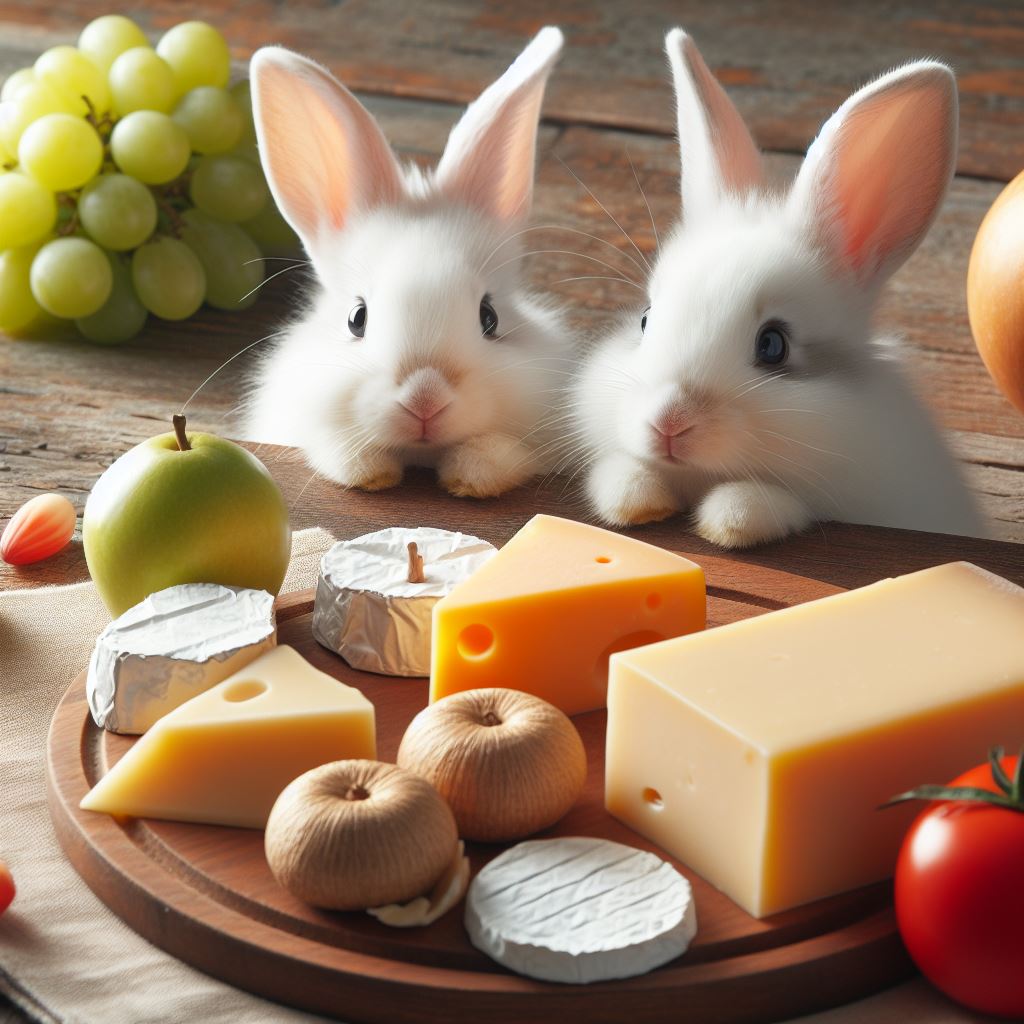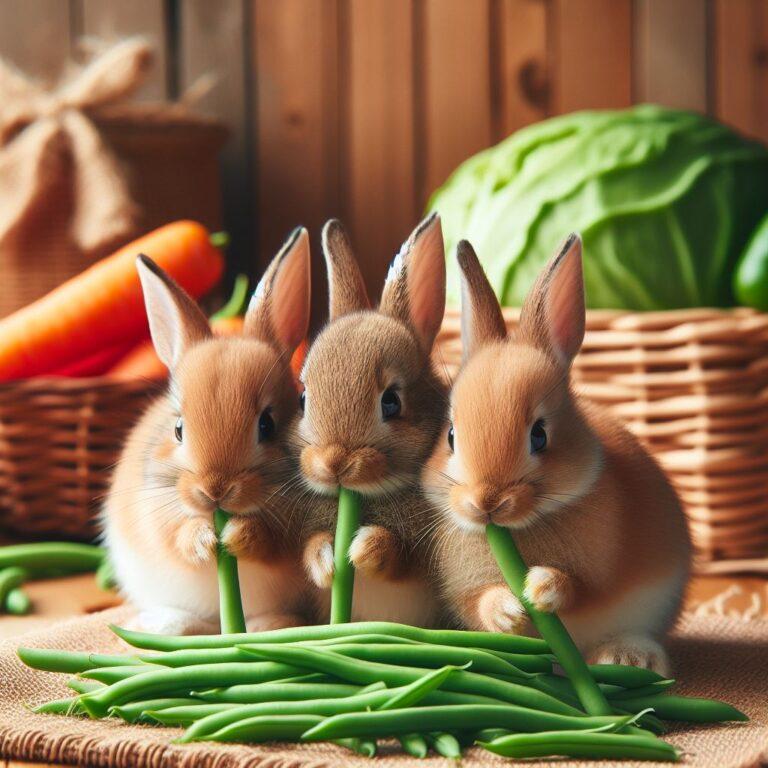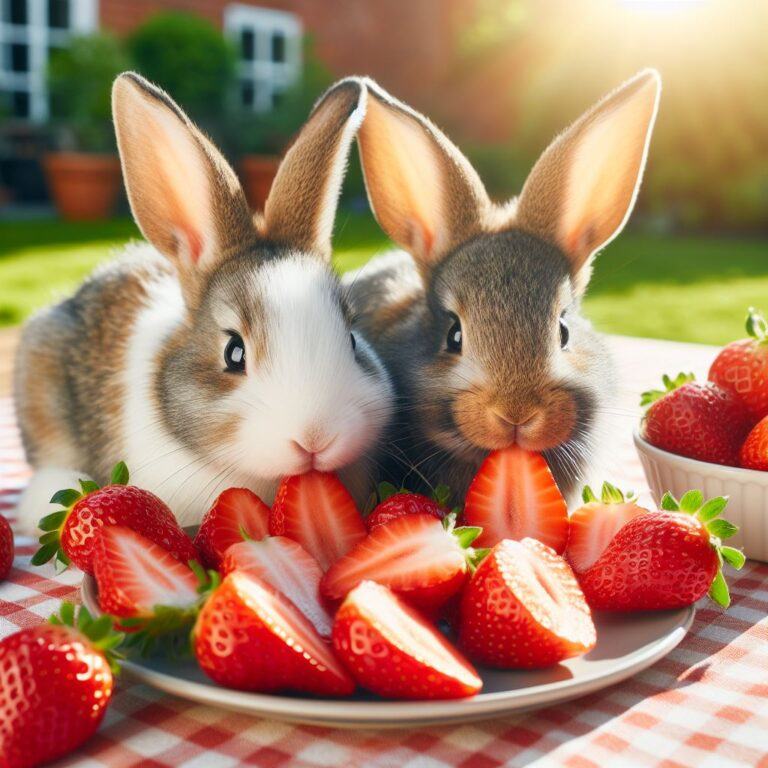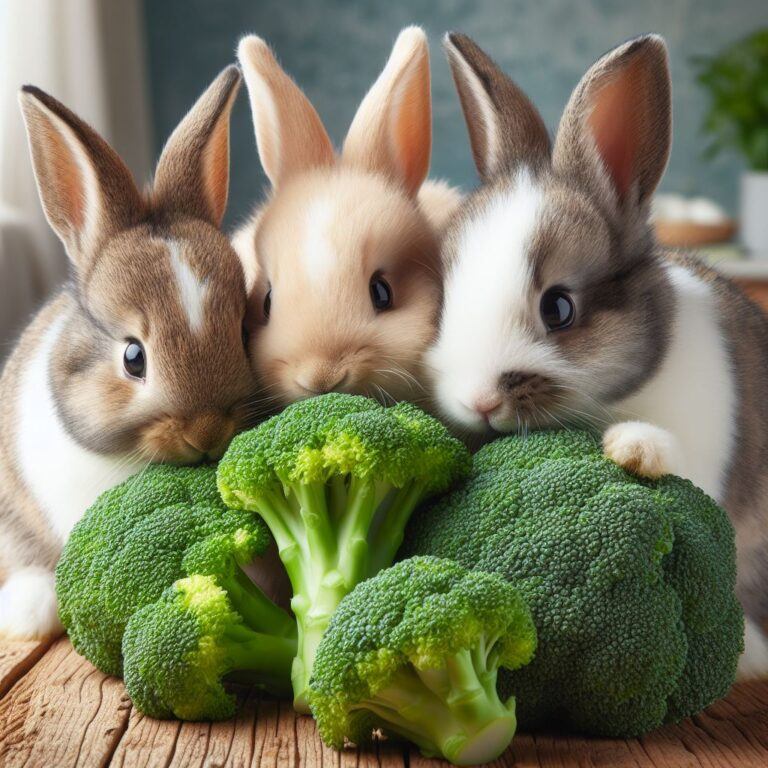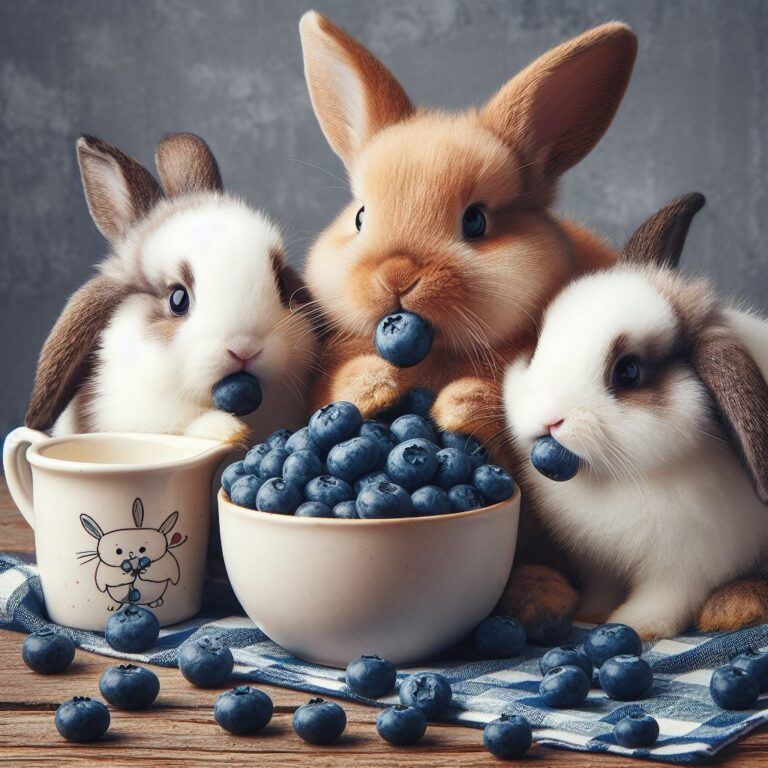Can Rabbits Safely Eat Cheese
No, rabbits should not eat cheese or any other dairy products for that matter. They are not safe for them to consume. Cheese contains lactose, a natural sugar found in dairy products that rabbits cannot properly digest due to a lack of the necessary enzymes needed to break it down.
Rabbits are herbivores, and their digestive systems are designed to process plant-based foods like hay, grass, and leafy vegetables such as kale, spinach, or arugula.
As responsible rabbit owners, we must understand the unique dietary needs of our furry friends and the potential risks associated with feeding them foods that are outside of their natural diet.
Understanding a Rabbit’s Digestive System
Rabbits are classified as obligate herbivores, meaning their bodies are solely equipped to digest and obtain nutrients from plant-based materials.
Their digestive tract is specifically designed to process high-fiber foods like hay, fresh vegetables, and a limited amount of fruits.
This specialized digestive system lacks the necessary enzymes to break down lactose, the natural sugar found in dairy products like cheese or yogurt.
Unlike humans and other mammals that can produce the enzyme lactase to metabolize lactose, rabbits do not have this ability.
When they consume dairy products, the undigested lactose can cause a range of gastrointestinal issues. Introducing cheese or other dairy products into a rabbit’s diet can lead to digestive distress, including diarrhea, bloating, gas, and abdominal discomfort.
Moreover, a rabbit’s digestive system is designed to maintain a specific bacterial balance. This balance is crucial for the proper breakdown and absorption of nutrients from the plant-based materials they consume.
Maintaining a proper, species-appropriate diet is crucial for a rabbit’s overall health and well-being. Their delicate digestive system relies on a balanced intake of hay, fresh vegetables, and a limited amount of fruits to function correctly.
Hay, in particular, plays a vital role in maintaining a healthy digestive tract and promoting proper dental wear, as rabbits’ teeth continually grow throughout their lives.
Risks and Complications of Feeding Cheese to Rabbits
Beyond the lactose intolerance issue, there are several other risks and complications associated with feeding cheese to rabbits. One of the primary concerns is the high fat and calorie content of cheese.
Rabbits require a low-fat, high-fiber diet, and the excessive fat found in cheese can lead to obesity, which can further exacerbate other health issues.
Obesity in rabbits can increase their risk of developing various conditions, such as heart disease, respiratory problems, and mobility issues. Additionally, the excess weight can put a strain on their delicate skeletal system, leading to potential joint problems and discomfort.
Cheese and other dairy products can also disrupt the delicate bacterial balance in a rabbit’s gut, known as the cecal flora.
This imbalance can lead to digestive issues, such as gastrointestinal stasis, a potentially life-threatening condition where the rabbit’s digestive system slows down or stops functioning altogether.
Gastrointestinal stasis can occur when a rabbit’s diet is lacking in fiber or when they experience stress or other underlying health issues. If left untreated, this condition can quickly become fatal, as rabbits cannot vomit and are unable to pass the buildup of food and gas in their digestive tract.
Additionally, some rabbits may develop allergic reactions to the proteins found in cheese, leading to skin irritations, respiratory issues, or other adverse reactions.
It’s important to remember that while certain human foods may seem harmless or even tasty to offer as treats, they can pose serious health risks to rabbits.
Before introducing any new foods to a rabbit’s diet, it’s crucial to consult with a veterinarian who can provide personalized advice based on the individual rabbit’s health profile and dietary needs.
Rabbit-Friendly Alternatives to Cheese
Instead of cheese, I would always recommend focusing on providing a balanced, hay-based diet for our bunnies.
Hay should make up the majority of their daily intake, as it is essential for maintaining a healthy digestive system and promoting proper dental wear. Good quality hay options for rabbits include timothy hay, orchard grass, and oat hay.
When it comes to treats, several safe and healthy options can be offered in moderation.
Fresh vegetables like carrots, leafy greens (such as romaine lettuce, kale, and parsley), and a limited amount of certain fruits can provide a tasty and nutritious snack for rabbits.
My rabbits do enjoy a few fresh herbs as well, like basil and mint, but….. always in moderation.
It’s important to note that some fruits, such as grapes and raisins, should be avoided as they can be toxic to rabbits.
Introducing new foods gradually and in small amounts is crucial when offering treats to rabbits. This allows you to monitor for any adverse reactions, as individual rabbits may have different preferences and tolerances.
Some rabbits may be more sensitive to certain foods than others, and it’s essential to observe their behavior and digestive patterns after introducing new items.
Providing a variety of safe treats can not only add excitement to a rabbit’s diet but also contribute to their overall well-being. However, it’s important to remember that treats should only make up a small portion of their diet, typically no more than 10-15% of their daily intake.
Consulting with a veterinarian is highly recommended when considering any dietary changes or additions for your rabbit.
They can provide personalized advice based on your rabbit’s specific breed, age, and overall health status, ensuring that you are making the best choices for your furry companion’s well-being.
While cheese may seem appealing to offer our beloved rabbits, it is essential to understand that their bodies are not equipped to digest dairy products safely.
As responsible rabbit owners, we must prioritize our furry friends’ well-being by providing them with a proper, species-appropriate diet.
This means focusing on a balanced, hay-based diet and offering safe, rabbit-friendly treats in moderation.
Remember, consulting with a veterinarian is always recommended when making any dietary changes or introducing new foods to ensure the best possible care for your rabbit’s unique needs and preferences.

